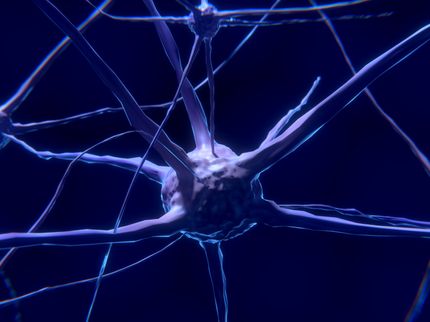Different foods linked to different types of stroke
Different types of food are linked to risks of different types of stroke, according to the largest study to investigate this to date.

Different foods linked to different types of stroke
Nuffield Department of Population Health
Stroke is the second leading cause of deaths worldwide, and there are two forms: ischaemic stroke, the most common, occurs when a blood clot blocks an artery supplying blood to the brain or forms elsewhere in the body and travels to the brain where it blocks blood flow. Haemorrhagic stroke occurs when bleeding in the brain damages nearby cells.
The study, published in the European Heart Journal, found that a diet rich in fruit, vegetables, fibre, milk, cheese and yoghurt was linked to a lower risk of ischaemic stroke, but there was no significant association with a lower risk of haemorrhagic stroke. Greater consumption of eggs was associated with a higher risk of haemorrhagic stroke, but not with ischaemic stroke.
Most previous studies have investigated association between food and all types of stroke, or ischaemic stroke. The current study looked at ischaemic stroke and haemorrhagic stroke separately. The researchers analysed data from over 418,000 participants in the European Prospective Investigation into Cancer and Nutrition (EPIC) study.
First author, Dr Tammy Tong, said “The most important finding is that higher consumption of dietary fibre, and fruit and vegetables, were both strongly associated with lower risks of ischaemic stroke, which supports current European guidelines.”
The total amount of fibre (including fruit, vegetables, cereal, legumes, nuts and seeds) consumed was associated with the greatest potential reduction in the risk of ischaemic stroke. Every additional 10g intake of fibre a day was associated with a 23% lower risk. This is equivalent to around two fewer cases of ischaemic stroke per 1000 of the population over ten years. Fruit and vegetables alone were associated with a 13% lower risk for every 200g eaten a day, equivalent to one less case per 1000 of the population over ten years. No foods were linked to a statistically significant higher risk of ischaemic stroke.
Based on UK estimates, two thick slices of wholemeal toast provide 6.6g of fibre, a portion of broccoli (around 8 florets) provides about 3g, and a medium raw, unpeeled apple provides about 1.2g of fibre. The European Society of Cardiology (ESC) and the World Health Organization Regional Office for Europe recommend eating at least 400g of fruit and vegetables a day. The ESC also suggests that people should consume 30-45g of fibre a day.
A large egg weighs approximately 60g. The research found that for every extra 20g of eggs consumed a day there was a 25% higher risk of haemorrhagic stroke, equivalent to 0.66 extra cases per 1000 of the population over ten years.
The associations found between different types of food and ischaemic and haemorrhagic stroke might be explained partly by the effects on blood pressure and cholesterol.
This observational study cannot show that types of food cause the increase or decrease in risk of ischaemic or haemorrhagic stroke, only that they are associated with the different risks.
Most read news
Other news from the department science

Get the food & beverage industry in your inbox
By submitting this form you agree that LUMITOS AG will send you the newsletter(s) selected above by email. Your data will not be passed on to third parties. Your data will be stored and processed in accordance with our data protection regulations. LUMITOS may contact you by email for the purpose of advertising or market and opinion surveys. You can revoke your consent at any time without giving reasons to LUMITOS AG, Ernst-Augustin-Str. 2, 12489 Berlin, Germany or by e-mail at revoke@lumitos.com with effect for the future. In addition, each email contains a link to unsubscribe from the corresponding newsletter.





























































